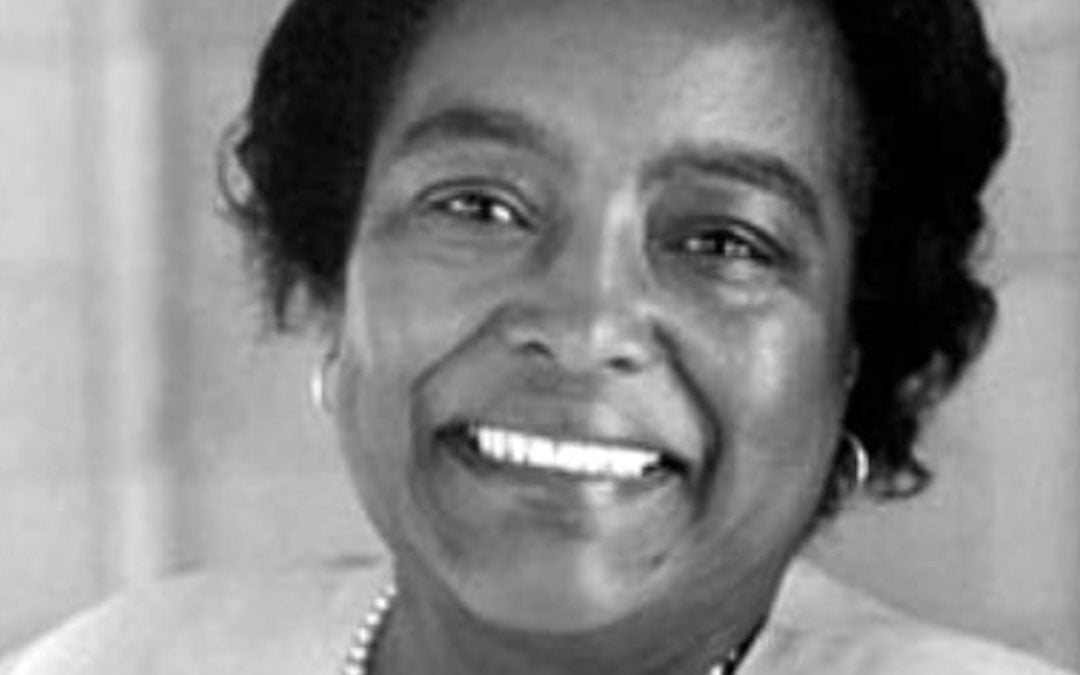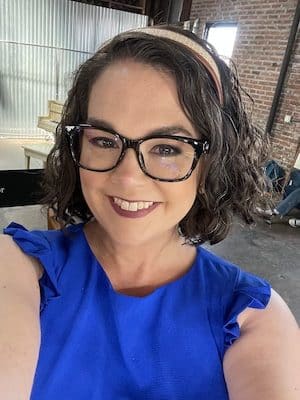Editor’s note: This article is an excerpt from Pace’s book, “Freedom Faith: The Womanist Vision of Prathia Hall” (University of Georgia Press, 2019). It is used with permission. Footnotes that appear in the book have been removed. The book is available for purchase here.
Prathia Hall described her work in the rural South as the best education she ever received: “I had been to school, I had been to college before I went south, and I’ve been to school a lot of years since. But the most important lessons that I ever learned, I learned in those rural counties from people who could not read or write their names.”
The most important part of her work was “talking and listening, teaching and being taught, singing and praying, and offering a helpful presence to women and men, young and old, who acted on the belief deep in their hearts that they would overcome some day.”
Hall often described this as “mutual educational exchange.”
Student Nonviolent Coordinating Committee workers had information about how to vote, and the local people “had learned the system and how to stay alive in the system morally, mentally and spiritually – how to live in an oppressively crushing system without being crushed.”
She met people who had supported their families on less-than-subsistence wages earned by backbreaking labor and had weathered discrimination, threats and violence with “strength and nobility.”
Women like Carolyn Daniels inspired Hall, “just knowing that they had endured this treacherous brutality for generations, and yet it had not killed their spirit. They were not crushed, they were not victims. They were survivors. They were overcomers.”
Elsewhere she said: “The primary lesson I received from those black sages was that of faith for living in life-threatening circumstances. It was a faith first made manifest by our slave fore-parents who defied the teachings of the slaveocracy.
“Those profoundly spiritual women and men developed their own moral critique of the slaveholders’ oppressive brand of religion and expressed the slaves’ absolute conviction that slavery was contrary to the will of God and that God definitely intended them to be free. These sons and daughters of those enslaved ancestors continued to hold on to that freedom-faith. The freedom-faith fired and fueled the fight.”
Hall’s father inculcated the theological understanding that God meant all people to be free, that “freedom and faith were woven together in the fabric of life” and that “service to people was service to Christ.”
In Albany, she contextualized her understanding of Freedom Faith as facing one’s fears with courage and confidence that the God who led her there would bring her home.
Hall’s extended incarcerations added rich hues to her theology of suffering for freedom: “You can never appreciate the peace, the solace, the quiet appalling silence. You read about it in the Bible. But you can’t appreciate it unless you’ve been in jail. Been in jail for a just cause. There is such a purging of the soul that you feel as though you have been relieved of all of your sins. The burdens of the world have been taken off of you.”
When someone persevered with courage in spite of their fear, Hall viewed that “as profoundly religious as saying a prayer or doing any kind of religious discipline.”
The person who trusted God to assist them in their pursuit of freedom in spite of their fears was “now willing to walk face to face with the forces of death in the struggle for life.”
Hall praised the courage and resilience of generations of black people who survived the brutality of slavery and Jim Crow because of their faith in God: “How had they done that? They had done that because each generation had passed on to the next generation this thing that I call Freedom Faith.”
Echoing Frederick Douglass’ “something” inside of him that was “a religious awakening, a sense of greater destiny and a deep yearning for his own freedom” and the “something within” of Adam Clayton Powell that gave him “power to speak” truth to power and “tremendous stability and security” of his purpose, Hall shared this internal certainty of God’s call to work for liberation for all people, even knowing the risks of such action.
This same Freedom Faith that sustained generations of black people would continue to sustain them as they opposed Jim Crow: “It may cost my job, it may cost my life, but I want to be free, and I want my children to be free.
“So I’m going down to the courthouse, and I’m going to sign my name. And I’m going to trust God to take me there, and I’m going to trust God to bring me back. That’s courage. That’s faith. That’s Freedom Faith.”
Hall’s time in Georgia refined her understanding of Freedom Faith from romanticized ideas of braving evil for the sake of good to a more spiritual understanding of faith capable of facing death for the sake of life: “There’s the courage that’s lived when one lays down one’s life for a cause, and there is that other courage that is lived when one lives one’s life for a cause.”
She called “living in the face of death … the most powerful expression of freedom-faith.” Hand in hand with the black sages of southwest Georgia, Prathia Hall “walked face to face with the forces of death in the struggle for life.”
Prathia Hall Scholar in Residence of Social Justice History for Equity for Women in the Church and a visiting faculty at Rhodes College. Pace is an ordained minister, researching social justice movements in American religion, particularly race and gender. She is the author of Freedom Faith: The Womanist Vision of Prathia Hall (2019), Beyond Eden: The Collected Sermons and Essays of Prathia Hall (2022).


